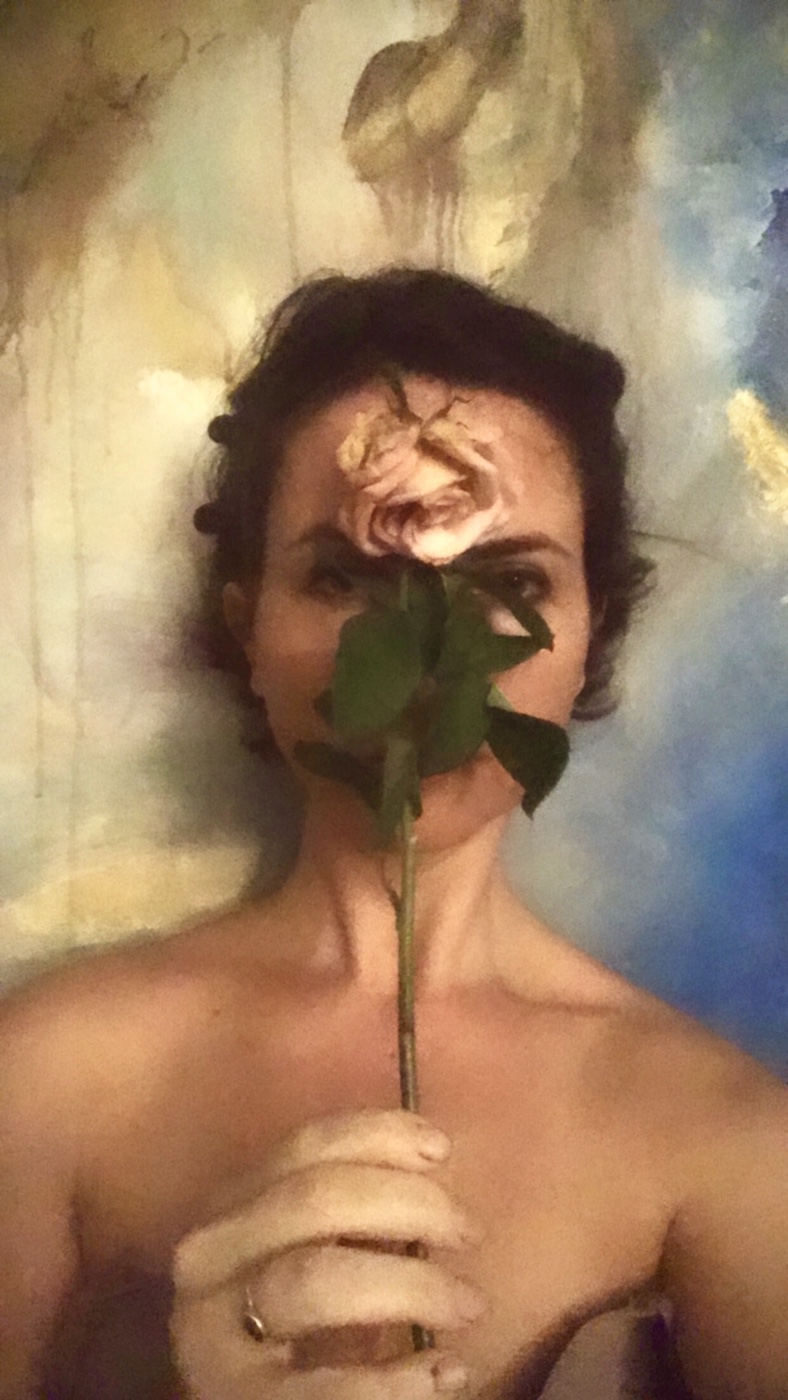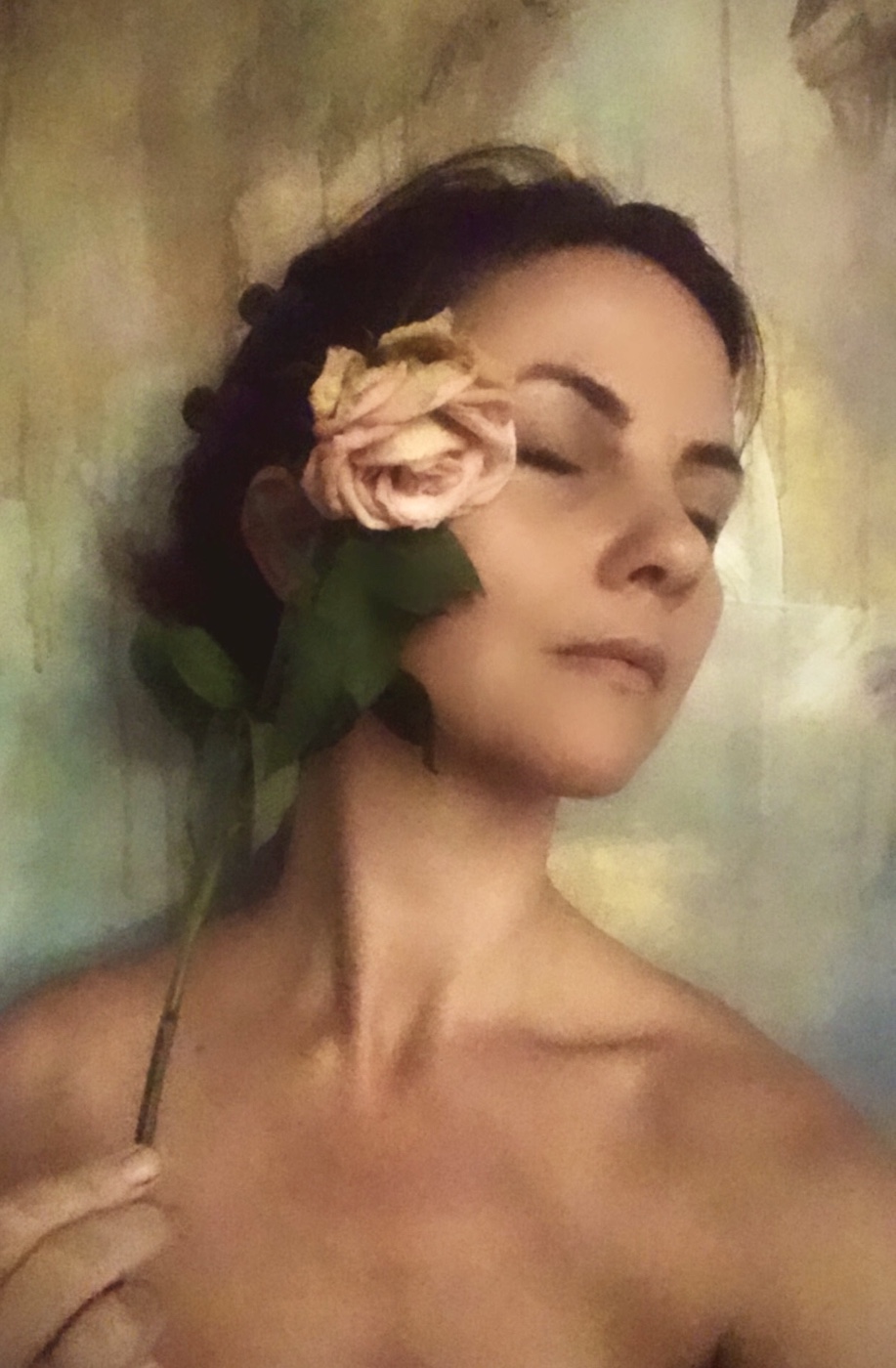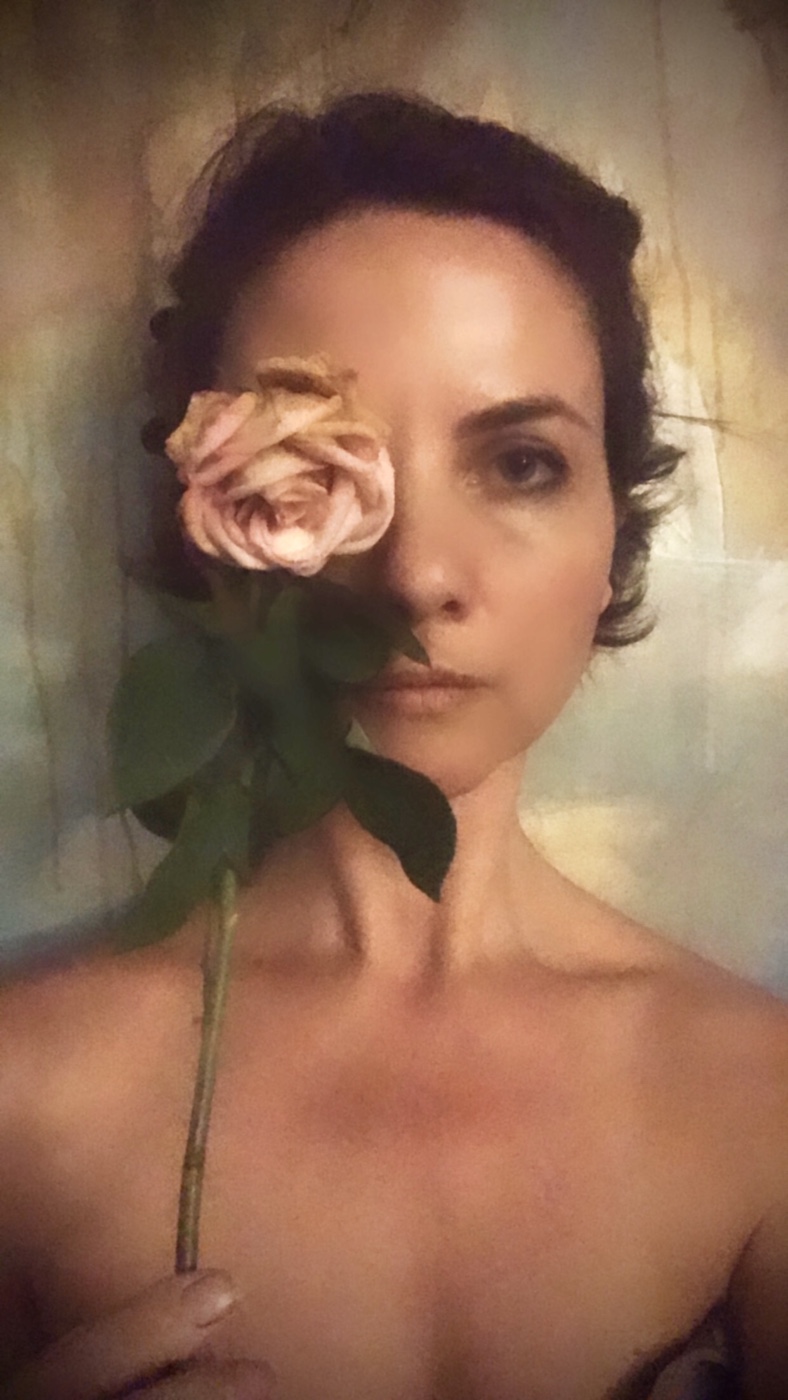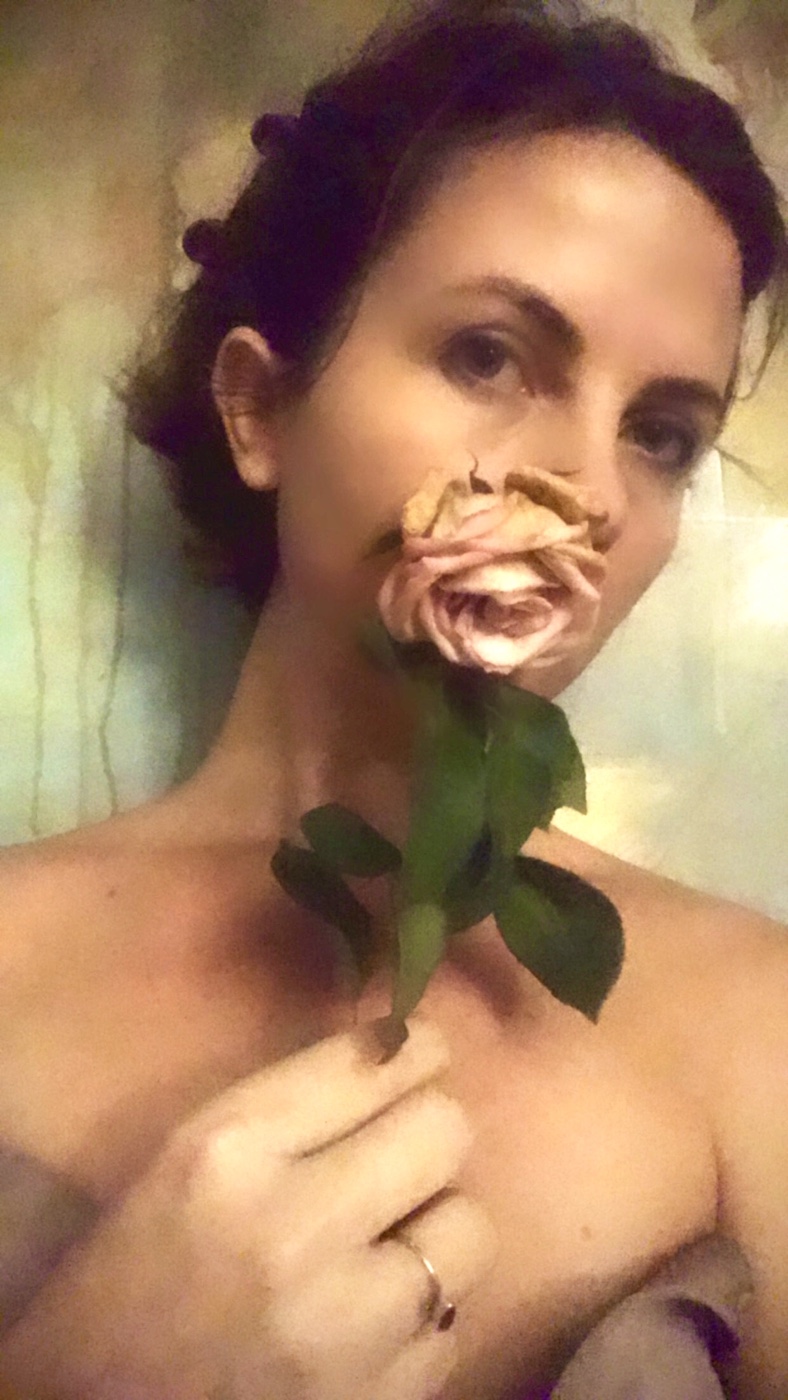FEATURES|COLUMNS|Geometry of Life
The Song of the Flower

Image courtesy of the author
Nothing in this world can explain what the soul is. Forget science, it is unable to provide any evidence. Forget theories, they even ridicule what “soul” could possibly mean. But we try within the limits of our grammar to connect with that inner flame of immortal life-flow, even knowing that the body will inevitably make its way to become earth.
Yet every single human, in moments of solitude, can to some degree, at some point of silent intimacy, hear the flowers sing. It is a mysterious language, never spoken, never written or defined, so we often tend to leave it unattended. I ask myself what has grown within us that we have forgotten how to hear and how to speak, how to move in emptiness and how to understand in silence? Why do we overvalue conceptualization when the breath has never found ways to explain the logic of the heart? When we fall in love, all our theories can go rolling down the hillside, and when we experience unlovingness, something in the mind simply doesn’t comprehend. We look for friends, teachers, therapists, but rarely does our discursive mind allow us to sit in silence and accept life just as it is. Our resistance to what life brings us hurts the soul. Our addiction to putting everything into words hurts the soul. Our monkey mind hurts the soul.
So many beings have sought ways to silence the mind, to calm the suffering of the soul. Sometimes the suffering crawls over us; immune to logic it just sits there with tea and biscuits, uninvited. We ignore it and then it screams.
I have felt that unspoken scream in my heart. Sometimes with clear justification, sometimes with nothing. I have looked into spirituality, meditation, philosophy, and poetry. I feel that religious morality has deeply confused me—it helps me to somehow exist in the world, but has simply never been the language of the soul. Because from that perspective, the soul is immoral and the mind is all the time so busy training and educating the soul, while calling freedom. What ambulant contradictions are we!

Image courtesy of the author
Poetry has saved me many times: it doesn’t try to fix anything; it celebrates death as much as it celebrates pleasure and joy and fantasies; ethereal truths, divided love, screaming at God, abandoning God, killing it, and then loving it, becoming it. All that allows the soul to be because it is just poetry and we are allowed somehow.
I have always loved to read and write poetry since I first learned how to write. I read Fernando Pessoa, the poems and letters of Rainer Maria Rilke, the deepness of ordinary daily life stories from Clarice Lispector and Hilda Hilst. I read many unknown lost poems of friends—what a gift to see a new poem unfolding from the tender heart of a loved one. It felt so close, so intimate. It felt like only I could understand them. It was an experience, not a lecture; it was life and love and death in a glass of words. When I read today my poems from when I was that 12-year-old country girl, there is no mastery in her language but I can smell the same visceral inquiry of today as she tries to express a certain longing for home. A home I have never known.
I want the following word: splendor, splendor is fruit in all its succulence, fruit without sadness. I want vast distances. My savage intuition of myself. — Clarice Lispector, The Stream of Life
I discovered poetry as a channel of expression which brought me somehow closer to “God” (however we might define that big, overused word). Even religion diminishes it when trying to explain, disregarding the refinements of the tongue of the poets. Poets are unglorified saints who penetrate the mysteries of life without trying to make a religion out of it or fix themselves, but recognize the connection and the preservation of what is mysterious and are able to dwell within its own existence. To accept one’s own ordinariness and to be lost in love. Just imagine being madly in love by God, or Goddess, or let us try to include in language a definition that has no gender or personality, I shall say The Unlimited One.
That which is being the only answer
The question is its measure. Ask the flower
And the answer unfolds in eloquent petals about the center;
Ask fire, and the rose bursts into flame and terror. — Kathleen Raine

Image courtesy of the author
When I read this piece of a poem from Kathleen Raine, and many others from her especially, I understood that only a flower can teach us about a flower, that only fire can give us the experience of fire. To learn about love we must encounter love, and to learn about the Infinite it is the Infinite we must approach. In my studies of sacred geometry, my own teachers told us students to always turn to nature, to always spend time in the wild, because there could never be a better teacher than nature to show us the truth of the mystery from where we all came and of the message of the sacred geometry. As Rilke wrote to the young Kappus:
If you trust in Nature, in what is simple in Nature, in the small Things that hardly anyone sees and that can suddenly become so huge, immeasurable; if you have this love for what is humble and try very simply, as someone who serves to win the confidence of what seems poor: then everything will become easier for you, more coherent and somehow more reconciling, not in your conscious mind perhaps, which stays behind, astonished, but in your innermost awareness, awakeness, and knowledge.
Perhaps you have the soul of a poet, even if you have never written before. It is more about how you receive the world, how you see it, how you love. Maybe you see it and your words are of silence, or you have made music, or art, or won your lover with a serenade only sang through your gaze. If you have sensed your soul hungry to unfold in its own nature, let it be. The mysteries will never be revealed to you, even if you become the most respected scientist or holiest priest. There is an understanding which occurs only when one melts oneself with the Truth, and when that happens there will be no “I” left to define it. It will simply be, like a flower. Like a cloud. Just there.
I do not know much. But there are certain advantages in not knowing. Like virgin territory, the mind is free of preconceptions. Everything I do not know forms the greater part of me: This is my largesse. And with this I understand everything. The things I do not know constitute my truth. — Clarice Lispector

Image courtesy of the author
A life lived with more poetry saves us from the poorness of ordinary judgment and enriches our smallest and apparently most insignificant scenarios into pure joy. Even with our sad cries, our longing, our abandonment, our boredom, it gives us the taste of sweet acceptance of the untold mystery of life, but so very deeply felt and lived. We don’t need romance, we need poetry; the kind that enables us to feel our hearts with a love song just by watching the flowers unfold from the joy of their lifeforce before turning gray and brown in the face of death—just as we all will. Flowers teach us how to die with grace. The eyes of the poet see life in all its raw beauty before being overcooked by the practical mind.
If you are called to be a poet, you know nothing beyond that you have the call and that is all. Follow with urgency, with nothing fixed. How wonderful, all to be lived! And if you do not hear the call, save your heart from that mind seeking answers, that mind which cannot bear the mystery, leaving us in unrest. Understand that poems don’t explain anything, they’re basically useless. Poems untie the mind from our experiences, giving room to illogical beauty that can penetrate life, leaving a certain perfume from which you will want more and more, until you melt completely into the unknown and die with a smile.
And at the very last, I leave you with one of the greatest, the poet Rumi.
The night is blind to the glory of dawn
Man is blind to the glory of the lover.
He who complains of burning is not a lover
For the lover’s heart is constantly on fire.
Tiffani Gyatso
Atelier Yabyum, Brasil
March 2021
Tiffani Gyatso is an artist from Brazil who has focused her field of study on the sacred expressions of art from different cultures. She specializes in traditional Tibetan thangka painting, which she learned in India at the Norbulingka Institute from 2003–06, before furthering her studies at the Prince School of Traditional Arts in London, where she studied Sacred Geometry of the Middle East. Today she runs her own art retreat center at the Atelier YabYum in the mountains of Brazil and guides art groups to India and Nepal.
See more
Related features from Buddhistdoor Global
The Proportions of Life
Remembering a Dance That Came in a Dream
Art, Culture, and Healing the World: A Conversation with Haema Sivanesan














